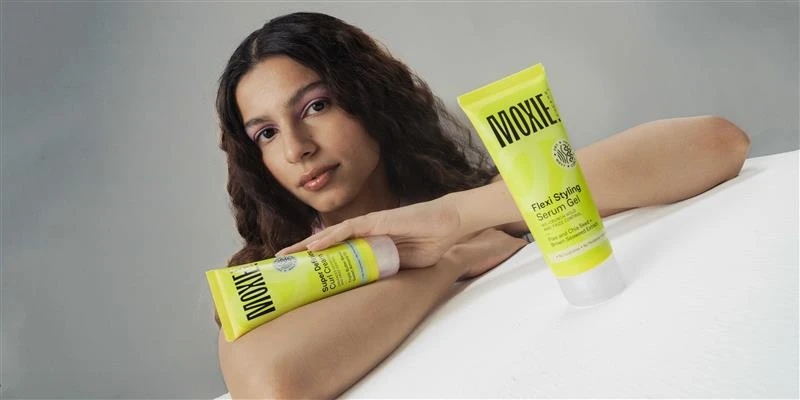A Step-by-Step Guide to Treating Hairfall and Dandruff


Dealing with both hairfall and dandruff can feel like fighting a battle on two fronts. Your scalp feels itchy, flaky, and irritated, while clumps of hair seem to fall out every time you run your fingers through it. Here's the thing though - these two issues are more connected than you think! When your scalp is inflamed from dandruff, it creates a hostile environment for healthy hair growth. But don't worry, we've got your back with a complete step-by-step guide that tackles both problems head-on.
Before jumping into treatments, let's understand why your scalp is throwing this tantrum. Hairfall and dandruff treatment works best when you know what's causing the chaos in the first place.
Your hair follicles are like tiny factories that need proper fuel to work. When you're low on iron, zinc, or biotin, both hair production slows down and scalp health takes a hit. It's like trying to run a car on empty - things just don't work properly.
Hormones can mess with your scalp's oil production, leading to either too much sebum (hello, dandruff!) or too little (dry, flaky scalp). PCOS, thyroid issues, or even monthly cycles can trigger both hair loss and scalp irritation.
Stress literally makes your hair fall out - it's not just in your head! Chronic stress disrupts the hair growth cycle and can worsen dandruff by affecting your immune system's ability to keep scalp fungus in check.
Sometimes you need to bring in the big guns. These hair loss treatments and medical interventions have solid science backing them up.
Minoxidil isn't just for men - it works for women too! For dandruff, ketoconazole shampoos are prescription-strength fungal fighters. These aren't your regular drugstore picks, so chat with a dermatologist about what's right for your specific situation.
If you're losing more than 100 hairs daily or your dandruff doesn't budge after 4-6 weeks of consistent treatment, it's time to call in the experts. Sometimes underlying conditions like seborrheic dermatitis or alopecia need professional diagnosis.
Nature has some pretty amazing dandruff remedies that won't break the bank or expose your scalp to harsh chemicals.
Mix one part ACV with two parts water and use it as a final rinse after shampooing. The acidity helps restore your scalp's pH balance and fights the fungus that causes dandruff. Plus, it makes your hair super shiny!
Tea tree oil is basically nature's antifungal superhero. Mix 5-10 drops with a carrier oil like coconut or jojoba, massage into your scalp, and leave for 30 minutes before washing. Rosemary oil has shown promise for hair regrowth too.
Whip up a nourishing mask with yogurt (probiotics for scalp health), honey (antimicrobial properties), and a few drops of essential oils. Apply to damp scalp, leave for 20 minutes, then shampoo as usual.
These scalp care tips address the root causes rather than just treating symptoms.
Load up on omega-3 fatty acids (think salmon, walnuts, flax seeds), iron-rich foods (spinach, lentils), and zinc sources (pumpkin seeds, chickpeas). Your hair follicles will thank you with stronger, healthier growth.
Meditation, yoga, or even just taking a 10-minute walk can lower cortisol levels. High cortisol is linked to both hair loss and inflammatory scalp conditions, so managing stress is crucial for hair and scalp health.
Your body repairs itself during sleep, including hair follicles and scalp tissue. Aim for 7-9 hours of quality sleep and consider a silk pillowcase to reduce friction that can cause breakage.
Consistency is key when it comes to hair fall prevention and dandruff control.
Wash your hair 2-3 times a week with lukewarm water. Hot water strips natural oils, leading to dryness and irritation. Focus shampoo on your scalp, not the lengths of your hair, and always follow with conditioner on mid-lengths to ends.
Spend 5 minutes massaging your scalp daily with gentle circular motions. This increases blood circulation to hair follicles and helps distribute natural oils. You can do this dry or with a few drops of oil.
Look for sulfate-free shampoos that won't strip your scalp's natural barrier. Ingredients like salicylic acid can help with dandruff, while niacinamide supports overall scalp health.
Once you've got things under control, these strategies will help maintain your progress.
Watch for increased itching, unusual hair shedding patterns, or changes in your scalp's appearance. Catching issues early makes treatment much more effective.
Your scalp's needs change with the weather. Winter often requires more moisturizing treatments, while summer might call for more frequent washing due to increased oil production and sweating.
Most people notice dandruff improvement within 2-4 weeks, while hair regrowth typically takes 3-6 months due to the natural hair growth cycle.
Natural remedies can be very effective for mild to moderate cases, but severe conditions often require medical intervention for faster, more dramatic results.
While dandruff itself doesn't cause permanent hair loss, the inflammation and constant scratching can damage hair follicles over time if left untreated.
Daily gentle care (like scalp massage) is beneficial, while intensive treatments (like oil masks) should be done 1-2 times weekly to avoid over-treatment.
Treating hairfall and dandruff isn't about finding one magic solution - it's about creating a comprehensive approach that addresses underlying causes while providing immediate relief. Remember, your scalp is skin too, and it deserves the same gentle, consistent care you give your face. Start with one or two changes rather than overhauling everything at once, and give treatments time to work. Your future self (and your hair) will definitely thank you for the patience and consistency!